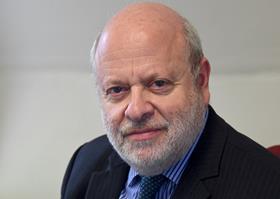The publication of anti-money laundering guidance to the profession by the Legal Sector Affinity Group (LSAG) raises interesting questions. The questions do not relate to the guidance itself, which I find comprehensive and clear on very complex legislation. Every solicitor should be aware of it.

Rather, it is interesting to consider the Law Society’s role. LSAG is made up of all the legal sector’s regulatory and representative bodies, including the Law Society and the SRA. The guidance has been submitted to the government – the Treasury – for approval. The Law Society’s Money Laundering Task Force is thanked on the very last page of the guidance ‘for their time, knowledge and expertise in undertaking practitioner review, challenge and input across this document.’
On the other hand, several foreign bars have a history of very vigorous litigious opposition against their own money laundering legislation, challenging it at every opportunity in the courts.
The classic case is Canada, which was host to a landmark case 6 years ago. The Canadian legal profession fought hard against impositions in the country’s new money laundering legislation, which it believed breached lawyer-client confidentiality. The Canadian law was not the same as ours. There was a duty to collect, record and retain material, including information verifying the identity of clients. A government agency had the power to search for and seize that material, with fines and penal consequences for non-compliance.
The law was never used against lawyers. Provincial law societies challenged it and won temporary court orders barring its use in five provinces. The federal government came to an agreement with the Federation of Law Societies of Canada to allow a single court challenge to proceed in British Columbia, while refraining from using the law until the case was concluded. The British Columbia case eventually went to the Canadian Supreme Court, which came down on the side of lawyers, exempting them from the law’s obligations, because of the negative impact on lawyer-client confidentiality.
European bars have also struggled hard against money laundering legislation, although with less success than their Canadian counterparts. They tried both routes open to them – the Court of Justice of the European Union (ECJ), and the European Court of Human Rights (ECtHR).
The Belgian Bars brought the case to the ECJ (Ordre des barreaux francophones and germanophone, Ordre français des avocats du barreau de Bruxelles, Ordre des barreaux flamands, Ordre néerlandais des avocats du barreau de Bruxelles v Conseil des Ministres (Case C-305/05)). The ECJ said that the obligations of information and of cooperation with the authorities responsible for combating money laundering do not infringe the right to a fair trial as guaranteed by Article 6 of the European Convention of Human Rights (ECHR).
The ECtHR came to the same conclusion in a challenge brought to it under Article 8 of the ECHR, mounted by a French lawyer (Michaud v France (Application no. 12323/11)). It concluded that the obligation for lawyers to report suspicions does not constitute disproportionate interference with the professional privilege of lawyers.
But European bars have not given up their efforts. In a recent case led again by the Belgian bars against their national money laundering legislation, the Belgian Constitutional Court issued a ruling in September 2020 partially annulling the local law. The decision concerns a narrow point. A lawyer is no longer required to report a suspicious transaction where the lawyer has persuaded the client not to pursue that activity.
It is a question which bars face frequently across a range of policy issues: how will they achieve the most for their members, by cooperation with those who make decisions over them or by opposition and litigation? The Canadian example shows that opposition and litigation can work – whereas the repeated European examples have not yielded much for lawyers.
There was a similar dilemma facing the Law Society in the middle of 2019 when the Criminal Bar Association voted to walk out over legal aid and prosecution fees. Which works best – a strike or engagement with decision-makers?
Of course, there is no right answer. No criticism is therefore intended towards the past work of the Law Society and its Money Laundering Task Force by continuing to ask questions about strategy.
In the case of money laundering, I think it is time for a radical rethink. For years now, the London property market has been a living example of how the most gold-plated AML compliance regime still permits huge amounts of laundered money into the conveyancing system. This was confirmed in the most recent UK government national risk assessment at the end of 2020.
If the current system, which is so burdensome to the profession, is not working, is the answer to continue with it? Or to say that cooperation is doing us no good, and that a new way has to be found?
Jonathan Goldsmith is Law Society Council member for EU matters and a former secretary general of the Council of Bars and Law Societies of Europe. All views expressed are personal and are not made in his capacity as a Law Society Council member, nor on behalf of the Law Society































8 Readers' comments